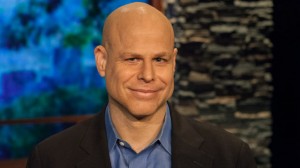We’re proud to collaborate with The Nation in sharing insightful journalism related to income inequality in America. The following is an excerpt from Nation contributor Greg Kaufmann’s“This Week in Poverty” column.
Nearly two years ago, TheNation.com launched “This Week in Poverty” as a way to keep the issue of poverty — and what we can do about it — front and center for our readers.
We felt that poverty was largely ignored by the mainstream media, with the exception of every September, when the new Census Bureau statistics were published. In contrast, as the oldest political weekly magazine in the country — founded by abolitionists in 1865 — The Nation has poverty coverage in its DNA. It’s been a great privilege to be a part of that coverage on a weekly basis.
Today marks my last “This Week in Poverty” post. I’m going to spend more of my time working with local, state and national organizations engaged in the fight against poverty. I look forward to continuing to contribute to The Nation as well as to BillMoyers.com, which has also been so supportive of this blog.
For me, spending more time in the field, and having the freedom to engage strategically with activists, feels like a natural progression of my work at The Nation. The more I have spoken with people who are struggling in poverty, or with workers trying to survive on low wages; the more I have been alarmed by Republicans, and disillusioned with Democrats; the more I have been impressed with the activists, thinkers and advocates fighting for good policy and stronger communities, while also searching for new approaches to that fight… the more I’ve wanted to get involved as an activist myself.
TheNation.com created this blog with the notion that it simply isn’t true that we don’t know what to do to turn the tide in the fight against poverty — that there are many progressive organizations and, most importantly, people living in poverty themselves, offering solutions that are there for the taking and that need to be heard.
My friend and editor Katrina vanden Heuvel and I share a deep respect for the people who are doing this work, and that was also a key motive for creating this blog: we need to recognize people and groups for their good ideas, and their hard work, much of which is done in relative anonymity. And of course, it was a glaring weakness in most media coverage of poverty that the stories rarely engaged with people who are actually living in poverty themselves. As we headed into the presidential campaign last year, this absence was even more glaring.
I think one of the best moments for this blog and what its readers could accomplish was TheNation.com’s #TalkPoverty effort during the presidential campaign, which was developed in collaboration with senior editor Emily Douglas and community editor Annie Shields.
We interviewed advocates (here, here, here and here) and people living in or near poverty, providing them with an opportunity to pose direct questions to President Obama and Governor Romney. It was an effort to push a constructive conversation about poverty into the presidential debate. Little did we know that so many groups and individuals would adopt the campaign as their own, trying to get the moderators of three presidential debates and one vice presidential debate to ask at least a single question about poverty (which the moderators failed to do). In the end, the Obama campaign responded to “This Week in Poverty,” and #TalkPoverty still thrives on Twitter today as a way to share information and promote action.
It’s my hope now that we will aggressively move beyond talk to organizing and taking action to push for known solutions. I believe that we will not see the kind of change we seek without a movement that is visible, constant and disruptive, as we have witnessed with the recent immigration reform and marriage equality movements.
The conditions for an antipoverty movement now exist: when more than one in three Americans are living below twice the poverty line (below about $36,500 for a family of three) — unable to pay for the basics like food, housing, healthcare, education, and unable to save — something’s got to give. When 95 percent of the economic gains are going to the top 1 percent, and more than 60 percent to the top .1 percent — the potential is there to unite the majority of people who are being denied an opportunity to get ahead.
So my hope as we close out this blog is the same as it was when we launched it — that readers will get involved in the fight against poverty, and work and push, and work and push, and work and push some more, until we get where we need to go.
Below is a list of organizations whose work I’ve had the privilege to get to know over the past two years. If you keep up with these groups, sign up for their updates, you will know more about poverty and what we can do about it than the vast majority of members of Congress or your state and local representatives do, and you will find opportunities to get involved. You can also share your own ideas with these groups about how we can build a strong movement — and I know you have great ideas. I know it because the most unexpected thing of all about this blog was the number of people who started e-mailing me about what needed to be covered. Your passion and ideas helped shape “This Week in Poverty” in significant ways over the past two years, and I thank you for that.
I hope you will keep in touch — I’m still writing — but most importantly I hope you will get involved and fight hard.
Children, Parents and Families
Broader, Bolder Approach to Education
National Partnership for Women and Families
Healthcare, Disability and Aging
Consortium for Citizens with Disabilities Social Security Task Force
National Organization of Social Security Claimants’ Representatives
Housing and Homelessness
Institute for Children, Poverty, and Homelessness
National Law Center on Homelessness & Poverty
National Low Income Housing Coalition
Hunger
Center for Hunger-Free Communities/Witnesses to Hunger
Food Research and Action Center
New York City Coalition Against Hunger
Justice and Courts
Race and Civil Rights
Leadership Conference on Civil and Human Rights
Poverty & Race Research Action Council
Research
Center on Budget and Policy Priorities
Center for Economic and Policy Research
National Employment Law Project
Workers’ Rights
Coalition of Immokalee Workers
Restaurant Opportunities Centers (ROC) United
Multi-issue Groups
Center for Law and Social Policy
Jewish Council for Public Affairs
Kansas Association of Community Action Programs



